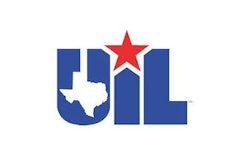School and its administrators may be liable after a track and field athlete is struck by a shot put.
Considering the potential danger that could result from being hit in the head by a heavy shot, the Richmond-Burton Community High School District is lucky that Mathew Glavin is still alive. Their luck may end there, however. Although Glavin's attorneys are hoping to get the name of the girl whose errant throw hit him, the group with the greatest liability may be school and athletics administrators.
While the facts of the case leave a lot of questions unanswered, there are a number of things that administrators can learn from Glavin's injury. First, as with all activities, track and field event administrators need to not only understand the limitations of high school athletes, but also of space. For example, under the theory of assumption of risk, the court might agree that a student measuring the length of shot put tosses at a track event assumes the risk of being hit by an errant throw. A student standing 9½ feet outside the boundary markers, however, cannot be expected to assume the risk of an errant throw coming from another area, especially if he or she is preoccupied with working in the immediate area. Therefore, one of the questions the court will need to determine is whether the practice area was too close to the competition area.
Second, event administrators have a greater duty of care and supervision over students working track and field events. This is especially true since the students are probably all still minors, and therefore not fully able to appreciate the risks involved in the activity. Therefore, another question the court will have to answer, should a lawsuit be filed, is whether anyone was supervising the student workers or the athletes.
Case Summary
Accidents can happen, especially around sports in which large, heavy objects are brandished and thrown. But even the most devastating accident doesn't necessarily lead to a lawsuit. Consider the case of Rebekah Whaley, a junior at Lone Jack (Mo.) High School who was struck in the head by a discus at an April 2007 track meet in Plattsburg. Getting ready to compete in the shot put in an area of the infield sectioned off for shot put and discus, Whaley was retrieving her second warm-up toss when a discus struck the left side of her head. When she left the hospital 12 days later, she had the language and reading skills of a third-grader, according to a report in The Kansas City Star. Neither her coach, who screamed "Duck!" while standing nearby, nor Brad Madison, the South Harrison High School athlete who threw the discus (and with whom, the Star reported, Whaley now text messages regularly), has been named in any lawsuit.
The situation this April at Richmond-Burton (Ill.) Community High School was very similar. Mathew Glavin, a Richmond-Burton student, was measuring the length of shot-put tosses at a track and field meet when an unidentified girl from Huntley High School entered the shot put area to practice. Glavin was standing 9½ feet outside the boundary markers when he was struck above his left ear, suffering a serious head injury. In October, Glavin filed documents in McHenry County Circuit Court asking a judge to order Richmond-Burton Community High School District 157 to release a report on the incident. Attorneys for Glavin did not respond to a request for comment by the Chicago Tribune, but learning the girl's name and other particulars is considered the first step in preparing for a potential lawsuit.
Being struck by a shot put or discus is typically considered an inherent risk of the sport of track and field, but not all case law on the subject is straightforward. In May 2007, the Appellate Division of the New Jersey Superior Court ruled against Robin Egerter, the assistant track and field coach at Bernardsville Middle School, who in a surprising twist had sued a 14-year-old student for negligence after she was struck by a shot put while measuring tosses. Egerter had charged that Nicholas Amato, an eighth-grader, was negligent for failing to comply with safety instructions or to observe that she was in his path - and, later, in an amended complaint, that Amato's parents were negligent for failing to supervise, instruct and educate their son.




































